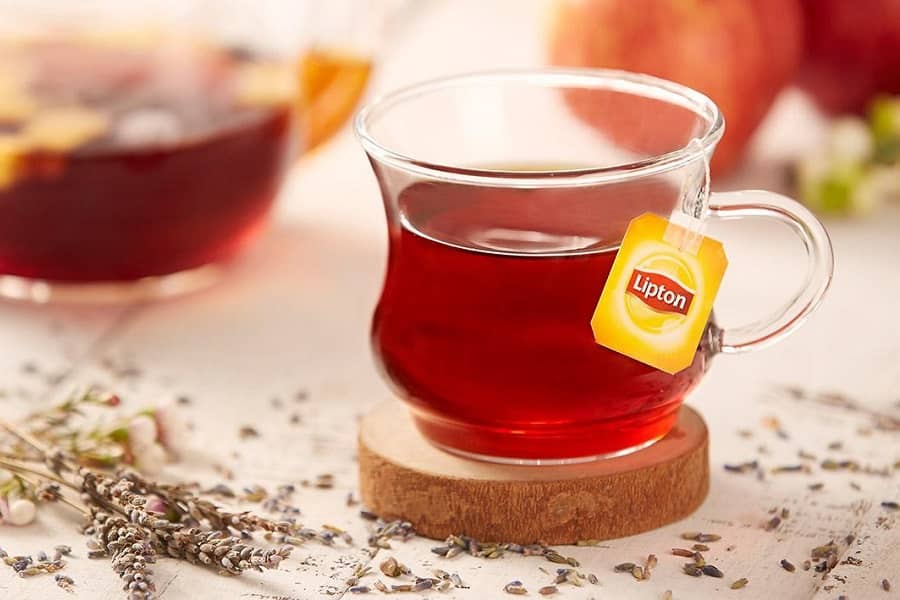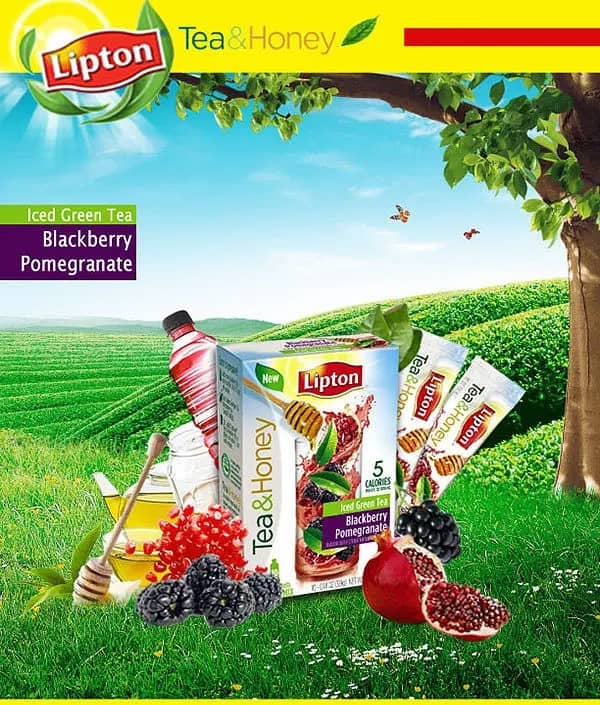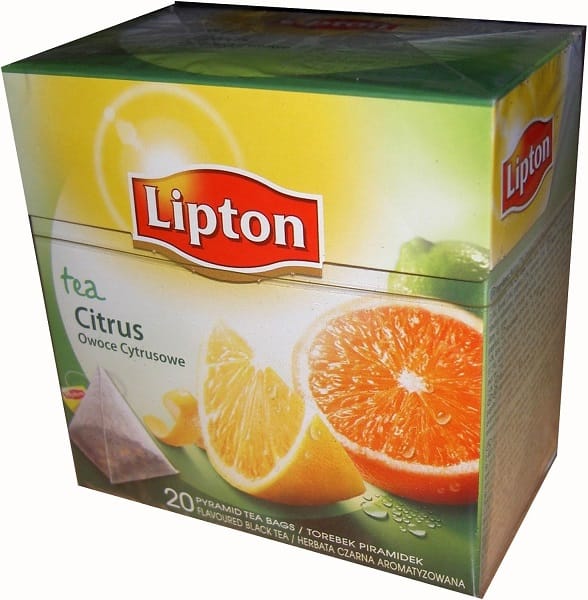Lipton the largest tea brand

Lipton is the largest tea brand in the world. The purpose of Lipton is to be bright, energetic and natural. Thomas Litton is the founder of this brand. In 1890, he officially launched Litton black tea in the UK, and used “Direct from tea garden to the tea pot” as the advertising word. In 1892, Lipton began the globalization movement, first set up factories in the United States, then opened branches in India, and entered the Far East market. In 1898, Lipton was conferred a title by the Queen of England, and was honored as the “king of black tea in the world”.
The raw materials of Lipton tea bag are from Kenya, and there are also tea from Sri Lanka, India and China. Lipton has three main bases in China, green tea in Mount Huangshan, Anhui, Ya’an, Sichuan, and black tea in Yunnan. Like all tea merchants, Lipton maintains a long-term cooperative relationship with suppliers. The difference is that Lipton requires suppliers to have a traceability system and other standard systems in their planting and processing processes in full compliance with the standards of the NGO organization “Rainforest Alliance” Rainforest Alliance. Lipton is also involved in the whole process of technical cooperation, guidance, supervision and inspection.
At the Kenya Tea Farm in Liton, the salary of tea pickers is three times of the average salary in Kenya, the staff’s housing is free, there is clean drinking water, the hospital specially built for the staff and their families to see the doctor, and 20 schools have been set up, providing better education than the Kenya government.
In 2007, Kericho, Kenya’s largest tea garden, was the first to be certified by the Rainforest Alliance. Now, Lipton cooperates with suppliers from 14 countries and regions in Africa and Asia to train small farmers so that they can also obtain certification. In Kenya alone, more than 700000 small farmers have been certified by the Rainforest Alliance. These certifications ensure the quality of the source of Lipton tea.
Through its continuous pursuit of sustainable development, Liton has been able to increase the number of local trees in the tea garden (planting more than 370000 trees to attract birds and wildlife). The tea garden has also improved wastewater treatment to create suitable local wetlands. At present, more than 97% of the energy needed by Lipton Tea Garden also comes from renewable energy.
Little known is that Lipton has the world’s top tea research center, which was established by Unilever in Sharnbrook, Bedfordshire, UK, in 1967.
The Institute has research centers or regional representatives in tea producing areas and major tea drinking areas (France, Japan, China and the United States) in India and Kenya. The mission of the Institute is to promote people’s awareness and understanding of tea from the tea tree to the tea cup, and study the benefits of tea in terms of mental and physical health. It also supports and coordinates research projects of global academic and research institutions.
For example, Lipton conducted academic exchanges with the Tea College of Zhejiang University, launched the “Lipton Talent Support Program”, cooperated with the research project of the graduate students of the Department of Tea of Zhejiang University, sponsored students to study in the British Tea Research and Development Center, and established the “Lipton Excellent Thesis Award”.
Lipton Tea Research Institute not only conducts research on planting, but also explores the benefits of tea to physical and mental health. For example, the Institute’s recent research focused on theanine and flavonoid antioxidants. These natural antioxidants in tea are said to be beneficial to health. Lipton uses a lot of research data to support the formula of Lipton tea.
Continuous innovation and keeping up with the trend of the times are also great driving forces for Lipton’s development. The Institute of Sustainable Development Leadership of Cambridge University, in cooperation with the Lipton Tea Research Institute, has begun to explore new ways to change the tea supply chain with blockchain technology. The characteristics of blockchain are in line with the application in the tea production process.
One of the biggest challenges of growing tea is traceability. The idea of launching the pilot project is to reduce the tracking time of tea from farmers to stores. The blockchain project involves cooperation with banks and technology start-ups to track the tea plants in Malawi, Africa, and is expected to benefit about 10000 tea farmers. This way to increase the income of tea farmers is sustainable.
As the tea capsule is limited by the function of the capsule machine, its market fell rapidly last year. Lipton is not optimistic about tea capsule products at all. Therefore, Lipton’s products focus on tea drinking and tea bags, and iced tea made of tea powder also has some parts.

Lipton’s products have strong identification of logo. There are only a few varieties of Lipton tea products on the shelves of American supermarkets. Unlike many tea enterprises, which have hundreds of tea categories, consumers are dizzy at a glance. This strategy of selected tea is also an important basis for Lipton’s mileage.
The popularity of tea bag actually solves the problem of filling the mouth with tea residue and filtering when drinking tea, at least improving the experience of tea drinking. This makes tea a fast consumable, not only convenient, but also particularly fast.
However, the tea bag is still relatively black, especially the tea people are basically sneering at it. The main reason is that whether the tea bag has an impact on the human body and whether the broken tea is dregs tea is not very clear. There are still staples on Lipton’s tea bag.
Most of the paper used in Liton’s tea bag materials are from the world’s largest certification systems, PEFC (Forest Accreditation Program) and FSC (Forest Management Committee), which are biodegradable. Lipton has a goal to reduce the packaging materials used in packaging boxes by more than 40%. Lipton continues to make efforts in sustainable development. Although these are respectable measures, they still can’t remove consumers’ doubts to the greatest extent.
In addition to the most famous yellow brand black tea, Lipton’s tea bags also include green tea, jasmine tea, matcha tea, and tea mixed with green tea or black tea to relieve stress.
Decaffeinated tea is also characteristic. Lipton’s decaffeinated tea uses ethyl acetate extraction to remove caffeine from the tea, but there is still some residual caffeine in the tea, such as about 2 mg in a cup. If you want to drink tea without caffeine, it can only be herbal tea. Lipton also has a lot of herbal tea to choose from.
In addition to tea bags, the biggest sales volume is instant tea. In 1991, Unilever and PepsiCo established a 50:50 joint venture to focus on the ready-to-drink tea market in the United States and learn from each other. In 2003, Unilever and PepsiCo established a second joint venture to make bottled and canned beverages, covering markets outside the United States. In addition to the pleasant cooperation between the two sides in the United States, it is also because of the advantages of FMCG. PepsiCo has filling plants and beverage sales networks throughout China, and Unilever has a strong R&D team in tea drinks and the “Lipton” brand series of tea is at the top of the industry.
Lipton has always emphasized taste and quality, and at the same time, with the support of research and development of its research institute, publicized the benefits of tea for health and health preservation. Besides the functional characteristics of health and refreshing, tea is also endowed with emotional factors such as taste. The pursuit and taste of fashion, mental and physical health will be an important prerequisite for consumer recognition.
To sum up, Lipton’s strong R&D strength and team, quality assurance of product development, unremitting pursuit of sustainable development, century-old world’s top tea brands, and the operation of beverage industry channels supported by cooperation with PepsiCo are all classics worthy of our study.

